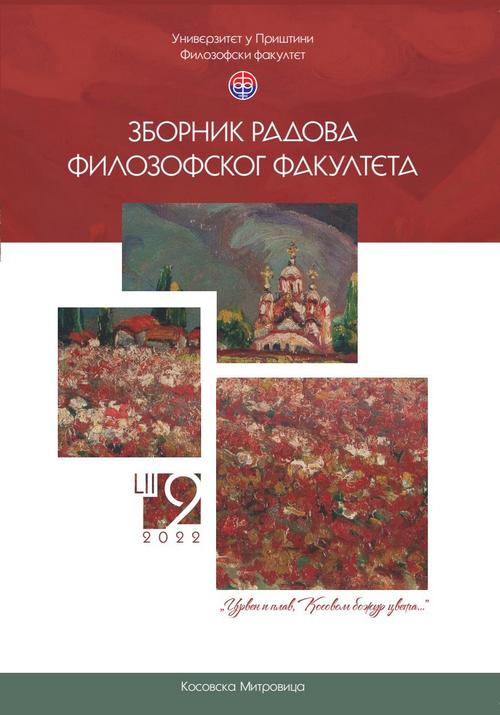Улога деспине Ирине Кантакузин у политичком животу Српске деспотовине
The Role of the Despotess Irene Kantakouzene in the Political Life of the Serbian Despotate
Author(s): Ivana D. VeselinovićSubject(s): 15th Century
Published by: Филозофски факултет, Универзитет у Приштини
Keywords: Irene Kantakouzenos; George Branković; Serbian despotate; Ottoman empire; foreign policy; Lordship of Serbian noble ladies
Summary/Abstract: Despotess Irene was considered the second person of the Serbian despotate in Serbian historiography. Owing to Serbian and Byzantine sources that mention her actions, this paper attempts to answer the question of her joint rule with despot Đurađ Branković in Serbian state, as an independent political factor. The first example of this is Efsigmen Charter from 1429, which the despot issued together with his wife. In addition, the miniature on Irene’s charter shows her with a sceptre in her hand, a royal sign, although her and Đurađ’s son had already been nominated for the heir to the throne, as indicated by the red shoes. Her activity is seen in the presence of a large number of Byzantines in Serbia, and then in the administration of the Serbian state. Of the Byzantines who lived in Serbia, the brother of the despotess Irene, Toma Kantakouzene was very important. He became the commander of the Serbian army, which was very unusual for the Middle Ages in Serbia. In 1435, during Đurađ’s visit to Požun, Irene ruled the country as we know, based on the Dubrovnik mission she received. In addition, the despotess was a member of the state council, and most likely the court council. Mavro Orbini left a note on Irene’s role in the diplomatic marriage between Mara Branković and Sultan Murad II, which Serbia used as means of preventing the Ottoman attack on the country. The fact that most points to Irene’s active political role is the question of the successor of the despot Đurađ. Mavro Orbini and Michael Kritovoulos wrote that Đurađ Branković appointed his wife to rule after his death, which was certainly related to the division in the family due to the deprivation of the throne of the blinded Grgur. Thus, Irene would be a person around whom the family would gather and reconcile, and who would rule the country. Her sudden death and the transfer of part of the ruling family to the Ottoman territory subsequently confirmed her right to power and the division that existed between the Branković family over the ruler and the country’s foreign policy.
Journal: Зборник радова Филозофског факултета у Приштини
- Issue Year: 52/2022
- Issue No: 2
- Page Range: 177-190
- Page Count: 14
- Language: Serbian

